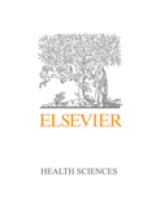Skills for Midwifery Practice - Elsevier eBook on VitalSource, 4th Edition
Now with a new design, the ever popular Skills for Midwifery Practice continues to provide the ideal level of instruction and guidance for a wide range of clinical skills, each one of which is presented in a unique, template format to help make learning easy.
Step-by-step guidance is given on a range of topics including abdominal examination, taking of maternal and neonatal vital signs, infection control, mother and baby hygiene, elimination and drug administration. Childbearing and intrapartum skills are also extensively covered as are neonatal assessment and nutrition, principles of phlebotomy and intravenous therapy, moving and handling, wound management and CPR.
Skills for Midwifery Practice is invaluable to midwives in training, qualified midwives returning to practice, as well as other members of the obstetric healthcare team.
Now with a new design, the ever popular Skills for Midwifery Practice continues to provide the ideal level of instruction and guidance for a wide range of clinical skills, each one of which is presented in a unique, template format to help make learning easy.
Step-by-step guidance is given on a range of topics including abdominal examination, taking of maternal and neonatal vital signs, infection control, mother and baby hygiene, elimination and drug administration. Childbearing and intrapartum skills are also extensively covered as are neonatal assessment and nutrition, principles of phlebotomy and intravenous therapy, moving and handling, wound management and CPR.
Skills for Midwifery Practice is invaluable to midwives in training, qualified midwives returning to practice, as well as other members of the obstetric healthcare team.
New to this edition
- New format - now with colour - makes learning even easier!
- Explores the use and significance of the Modified Early Obstetric Warning Scoring Chart
- Discusses advances in equipment usage including the application of sequential compression devices, temporal artery thermometers, and pulse oximetry in the early detection of critical congenital heart disease
- Contains advances in microbiology and infection control including the application and removal of gloves and the use of ANTT for each relevant procedure
- Physiology updates include an expanded section on normal and abnormal breathing patterns, the structure of the stratum corneum at birth and the factors that affect its barrier function, and neonatal reflexes present at birth
- Updated information regarding the use of the automated external defibrillator during maternal resuscitation, and the use of blended air and oxygen and pulse oximetry during neonatal resuscitation
- Care of the traumatised perineum - including expanded discussion of modern suture materials
- Recognition and management of complications associated with infusion therapy and epidural analgesia
Key Features
- Presents over 150 essential midwifery procedures in an easy-to-read, quick reference format
- ‘Learning Objectives’ and ‘end-of-chapter’ self-assessment exercises allow readers to monitor their progress
- Refers to the latest evidence and research, including current national and international guidelines
- Explains the underlying physiology associated with pregnancy and childbirth
- Over 150 artworks help explain physiological processes and clinical procedures
- ‘Roles and Responsibilities’ boxes define the nature and extent of current practice
- Ideal for use as a basis for teaching and assessment
Author Information




